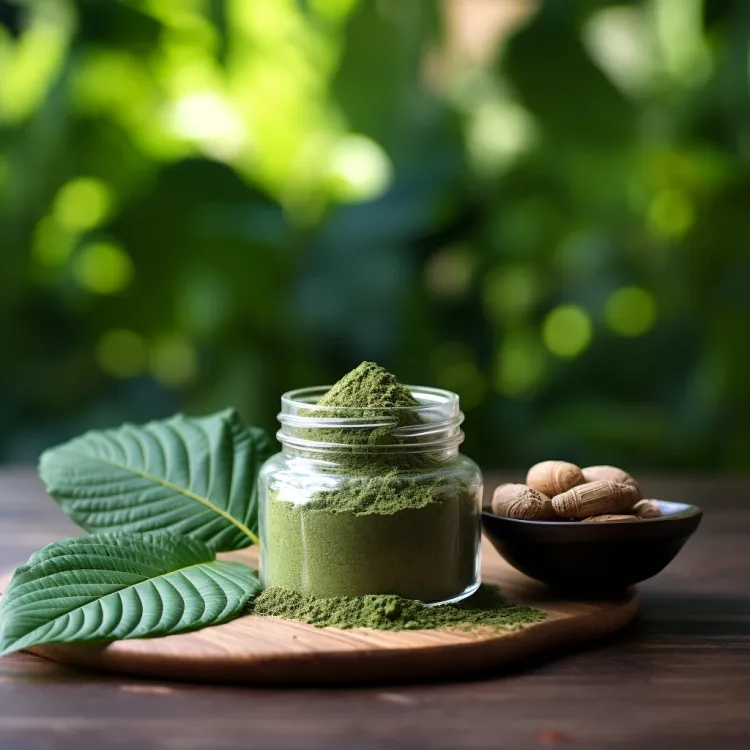The Ultimate Guide To Kratom Potentiators
Kratom 03-02-2024

A kratom potentiator, in the most general sense, is a substance which can be taken to increase the effect kratom has on an individual. This is important as the aim should always be to take the optimal therapeutic dose in order to maximize benefits and minimize any potential side effects.
Note: This article will be updated in the coming days.
The Three Subcategories
- Kratom Potentiators - These substances enhance the potency of kratom powder.
- Kratom Bioavailability Enhancers - These substances increase the absorption percentage of alkaloids from kratom, thereby intensifying its effects.
- Kratom Tolerance Reducers - These substances diminish tolerance to kratom, indirectly enhancing its effects by reducing accumulated tolerance levels.
Typically potentiators are taken with kratom, bioavailability enhancers are taken before you take kratom, and tolerance reducers are taken at other times or on days you don’t consume kratom. There is however a fourth, special class of substances with pair well with kratom:
- Kratom Synergizers - These are substances with independent effects on the mind and/or body, believed to enhance the desirable effects of kratom through synergistic interactions alone. Unlike other types, substances in this category do not directly amplify the strength of kratom; instead, their effects are believed to complement those of kratom when combined.

Key Reasons to Enhance the Potency of Your Kratom
-
Get more out of less - Enhancing the effectiveness of your kratom consumption not only leads to cost savings but also reduces the likelihood of encountering adverse side effects, typically associated with excessive dosages. Some individuals on online forums express concerns about the perceived drawbacks of kratom, yet a closer examination reveals that certain complaints stem from consumption exceeding 50g or even 100g per day. Analogously, similar to how responsibility for health lies with the individual when consuming excessive cheeseburgers, prudent kratom use rests with the individual rather than the fast-food provider.
-
To reduce tolerance - Employing kratom potentiation serves as a strategic approach to mitigate tolerance development. This method enables users to sustain desired effects with lower and more controlled doses over an extended period.
-
To feel a stronger effect - Through the incorporation of potentiators, individuals aim to amplify the overall impact of kratom, enhancing the subjective experience and achieving a more pronounced and satisfying outcome.
-
To increase the duration of the effect - Potentiating kratom serves as a technique to extend the duration of its effects, providing users with a more sustained and prolonged experience.
The most important aspect of a quality kratom dose
Before we delve into the specifics of kratom potentiators it must be understood that the most effective “potentiator” is your general overall health. This includes proper hydration (especially around dosing), high quality sleep, exercise, decent nutrition, high quality magnesium intake, and a functional digestive system. If you can’t nail these basics then focus on fixing these core fundamentals first then chances are the kratom dose will never be as effective for you as it can be.
1. Black Pepper (piperine)
Black pepper contains a compound called piperine, which has been found to enhance the effects of certain substances, including kratom. Here’s how piperine may potentiate kratom:
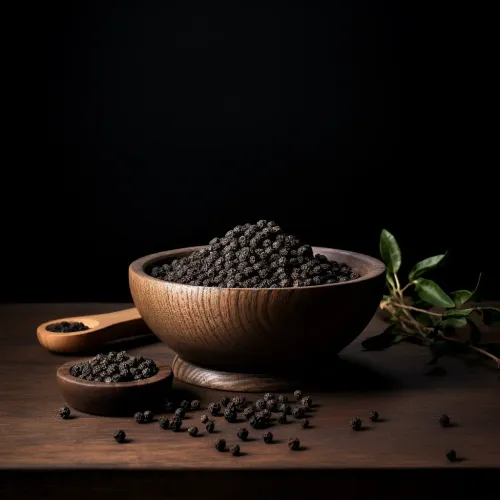
- Increased Bioavailability: Piperine has been shown to enhance the bioavailability of various compounds by inhibiting certain enzymes in the liver and intestine that metabolize drugs. By inhibiting these enzymes, piperine can increase the absorption of kratom alkaloids into the bloodstream, leading to stronger and longer-lasting effects.
- Delayed Metabolism: : Piperine may slow down the metabolism of kratom alkaloids, allowing them to remain active in the body for a longer duration. This can result in prolonged effects and a more sustained relief from pain or other symptoms.
- Enhanced Analgesic Effects: By increasing kratoms bioavailability and prolonging its activity in the body, piperine could potentially amplify the pain-relieving properties of kratom.
- Improved Mood and Energy: Some users report that combining black pepper or piperine with kratom results in enhanced mood elevation and increased energy levels. This synergy may be attributed to the combined effects of kratom alkaloids and piperine on neurotransmitter systems in the brain.
2. Curcumin
Curcumin, the active compound in turmeric, may potentially enhance or potentiate the effects of kratom in several ways;
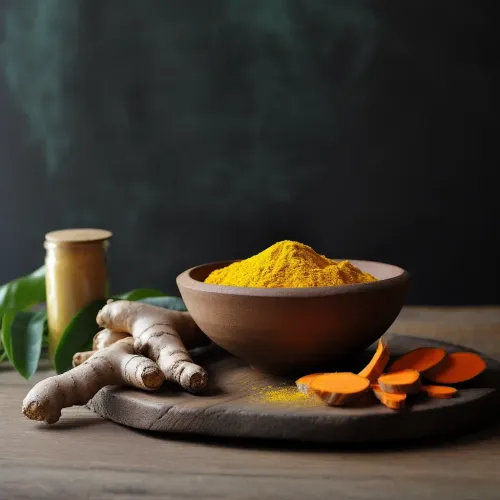
- Anti-inflammatory Properties: Both curcumin and kratom possess anti-inflammatory properties. By reducing inflammation in the body, curcumin may complement the analgesic effects of kratom, providing additional relief from pain associated with conditions such as arthritis, fibromyalgia, or injuries.
- Increased Bioavailability: Like before with piperine, curcumin inhibits cytochrome P450 (CYP450) family in the liver, leading to higher concentrations of the active compounds in the bloodstream and potentially enhancing their effects.
- Synergistic Effects on Mood: Both kratom & curcumin have been reported to have mood-enhancing properties, as such combining the two may result in synergistic effects on mood regulation, potentially leading to improved feelings of well-being, reduced anxiety & enhanced motivation.
3. L-Tyrosine (or N-acetyl-l-tyrosine NALT)
L-tyrosine and its acetylated form, N-acetyl L-tyrosine (NALT), are amino acids that serve as precursors to neurotransmitters such as dopamine, adrenaline, and noradrenaline. While there isn’t direct scientific evidence indicating that L-tyrosine potentiates kratom specifically, there are theoretical ways in which it could interact:
- Enhanced Mood & Focus: L-tyrosine is known to support the synthesis of dopamine, a neurotransmitter associated with mood regulation, pleasure, and focus. Kratom also interacts with neurotransmitter systems, including the opioid receptors and serotonin pathways, which can influence mood and cognition. Combining L-tyrosine with kratom may potentially enhance mood elevation, motivation, and cognitive function.
- Amplified Energy and Alertness: L-tyrosine is involved in the production of adrenaline and noradrenaline, which play essential roles in energy metabolism and arousal. By increasing the availability of these neurotransmitters, L-tyrosine supplementation may promote feelings of alertness, energy, and physical stamina, which could complement the stimulating effects of certain kratom strains.
- Mitigation of Potential Side Effects: Some users report experiencing fatigue or lethargy as kratom effects wear off. L-tyrosine supplementation might help counteract these effects by supporting the synthesis of neurotransmitters involved in maintaining energy levels and motivation.
- Reduction of Tolerance: Although there isn’t direct evidence, some individuals believe that L-tyrosine supplementation may help reduce tolerance to kratom over time. By supporting dopamine synthesis, L-tyrosine could potentially modulate the brain’s response to kratom alkaloids, leading to sustained effectiveness with lower doses.
4. Nicotine
Nicotine releases many neurotransmitters and hormones, including acetylcholine, norepinephrine, epinephrine, arginine vasopressin, serotonin, dopamine, and β-endorphin. The action on β-endorphin is main reason why it’s on this list. It enhances the action of serotonin and opioids. So if you’re a smoker, vaper, nicotine gum chewer, or even a distinguished snus enthusiast; you may have noticed that nicotine potentiates some strains significantly. Smoking right before the effects kick in greatly enhances the onset. However we strongly do not recommend picking up a nicotine habit simply for the sake of kratom.
5. Phenibut
While technically phenibut is not a potentiator pharmacologically for kratom, we thought it should be included under the category “synergizer”.
However caution must be advised. Phenibut should never be taken more than 2 days in a row ideally as the body may become dependent on it, leading to a problematic withdrawal. In general no GABA drug should be used daily. Taking phenibut along with the kratom at most twice per week in moderation alongside doses of kratom is found to be safe and very effective. It must be re-emphasized that this combination is probably best avoided if you have an addictive personality.
This combination (or just phenibut itself) is best used for things like presentations, first dates, interviews, or if you know you absolutely need to sleep due to a big day the next day, and hell just once in a while for a good time or an especially productive day.
For more information on this combination please check out our article on phenibut.
6. Black Seed Oil (Nigella Sativa)
Black seed oil has been traditionally used for its potential health benefits, including anti-inflammatory, antioxidant, and analgesic properties. It is the black seeds referred to by Prophet Muhammad, who once stated, “The black seed can heal every disease, except death”.
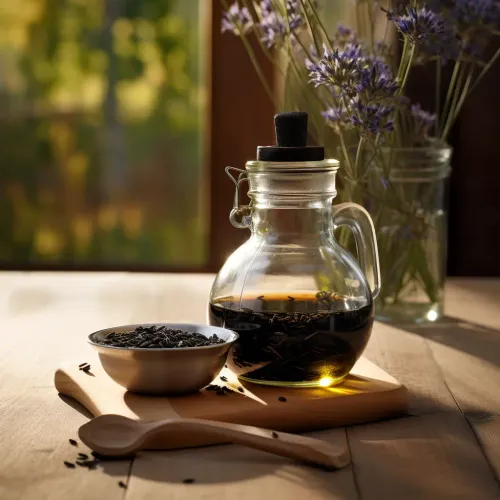
- Enhanced Analgesic Effects: Both black seed oil and kratom have been reported to have analgesic (pain-relieving) properties. Combining them may potentially enhance their individual pain-relieving effects, providing more robust relief from pain associated with conditions such as arthritis, fibromyalgia, or injuries.
- Synergistic Anti-inflammatory Effects: Black seed oil contains compounds like thymoquinone, which have demonstrated anti-inflammatory effects in some studies. When combined with kratom, which also possesses anti-inflammatory properties, they may have a synergistic effect in reducing inflammation throughout the body.
- Potential Mood Enhancement: Some users report mood-enhancing effects from both black seed oil and kratom. Black seed oil may support mood regulation through its impact on neurotransmitter systems, while kratom interacts with opioid receptors and serotonin pathways, which can influence mood. Combining the two may lead to enhanced mood elevation and feelings of well-being.
- Improved Digestive Health: Black seed oil has been traditionally used to support digestive health and alleviate gastrointestinal issues. If kratom use leads to gastrointestinal discomfort or constipation in some individuals, black seed oil may help alleviate these symptoms, promoting overall digestive well-being.
7. Full Spectrum CBD Oil
Combining full-spectrum CBD oil with kratom may potentially offer complementary effects due to their interactions with various physiological systems.
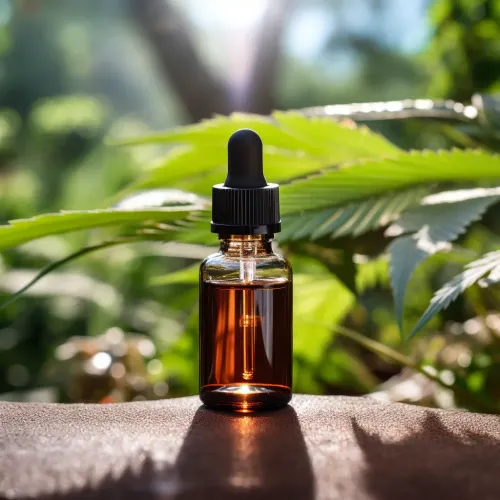
- Enhanced Pain Relief: Both full-spectrum CBD oil and kratom have been reported to possess analgesic (pain-relieving) properties. CBD interacts with cannabinoid receptors in the endocannabinoid system, while kratom interacts with opioid receptors and other neurotransmitter systems involved in pain perception. Combining the two may potentially enhance their individual pain-relieving effects, providing more robust relief from acute and chronic pain.
- Reduced Inflammation: Full-spectrum CBD oil has been shown to have anti-inflammatory effects by modulating immune responses and reducing inflammation throughout the body. Kratom also possesses anti-inflammatory properties. Combining the two may have a synergistic effect in reducing inflammation, which is often associated with conditions such as arthritis, fibromyalgia, and autoimmune disorders.
- Improved Mood Regulation: Both CBD and kratom have been reported to have mood-regulating effects. CBD interacts with serotonin receptors and other neurotransmitter systems involved in mood regulation, while kratom interacts with opioid receptors. Combining the two may lead to enhanced mood elevation, reduced anxiety, and improved overall emotional well-being.
- Enhanced Relaxation and Sleep: Both CBD and certain strains of kratom are known for their relaxing and sedating effects, which may help promote better sleep quality and alleviate insomnia. Combining the two may enhance these effects, leading to improved relaxation and more restful sleep.
8. Coffee / Caffeine

9. Grapefruit juice
Grapefruit juice contains compounds known as furanocoumarins, which can inhibit certain enzymes in the liver and intestines responsible for metabolizing drugs and substances, including kratom alkaloids.

- Increased Bioavailability: Furanocoumarins in grapefruit juice inhibit the activity of cytochrome P450 enzymes in the liver and intestines. By inhibiting these enzymes, grapefruit juice can increase the bioavailability of kratom alkaloids, leading to higher concentrations of active compounds in the bloodstream and potentially enhancing the effects of kratom.
- Prolonged Duration of Action: Inhibiting cytochrome P450 enzymes can also slow down the metabolism of kratom alkaloids. This can lead to a prolonged duration of action, as the alkaloids remain active in the body for a longer period before being metabolized and eliminated.
- Potential Reduction of Tolerance: Some users believe that consuming grapefruit juice or orange juice alongside kratom may help prevent or reduce tolerance to kratom alkaloids over time. By increasing the bioavailability and prolonging the duration of action of kratom alkaloids, grapefruit juice may potentially modulate the brain’s response to these compounds, leading to sustained effectiveness with lower doses and reducing the risk of tolerance buildup.
Individual responses to supplementation can vary, and there may be risks or adverse effects associated with combining these substances, particularly for individuals with certain medical conditions or those taking medications.



